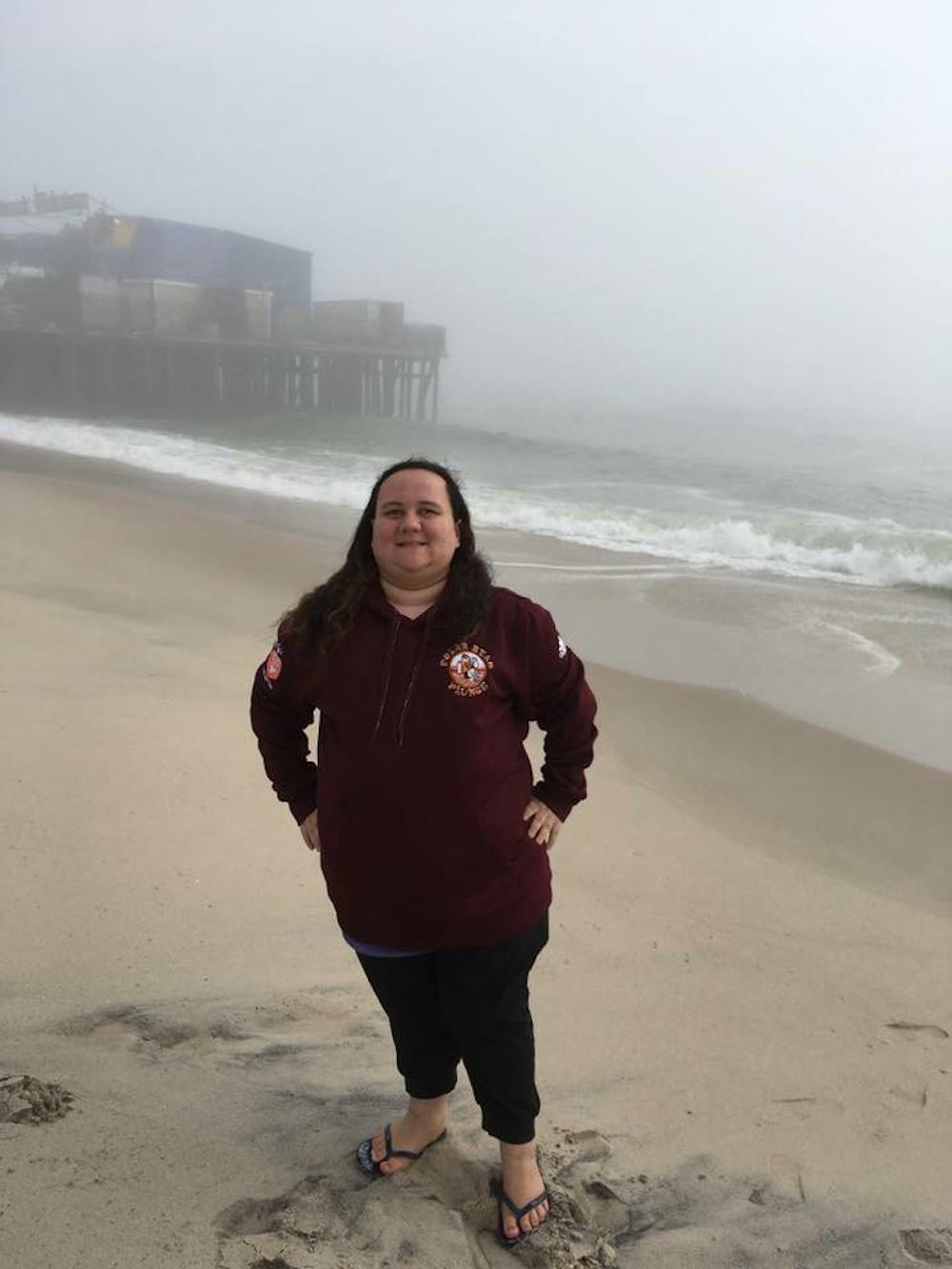Veronica Gaspa, a junior creative writing major, applied to Seton Hall University on a whim. Born blind, she needed a school with appropriate services and accommodations in order to attend classes and live away from her home in Virginia.
“I was online talking to visually impaired friends and they said to apply to Seton Hall since they knew their Disability Support Services are pretty good,” Gaspa said. “So, I applied with one week left and I got in.”
[caption id="attachment_19879" align="aligncenter" width="720"] Junior Veronica Gaspa uses various resources on campus to navigate, both physically and socially.
Junior Veronica Gaspa uses various resources on campus to navigate, both physically and socially.
Photo courtesy of Veronica Gaspa[/caption]
After coming to campus, she tried to acclimate to her classes and live independently with help from Disability Support Services (DSS). DSS offers support in the classroom and around campus for temporarily and permanently disabled students and encourages growth in the classroom by working with professors.
“The professors really want me to succeed,” Gaspa said. “If something’s not accessible, they’re creative.”
Angela Millman, director of DSS, is proud of the services that Seton Hall offers.
“I believe SHU has a very strong disability services office,” she said. We work closely with students, faculty, and administrators in order to ensure students with disabilities have equal access to a Seton Hall education.”
Millman said students with disabilities are equal to any other student on campus.
“Students with disabilities are students first,” Millman said. “They have to make all the same adjustments that any other student would. Their disability may play a role in certain situations.”
For example, she said that a student with blindness will have to learn how to navigate campus.
In addition to DSS, Gaspa also shared that other services, such as Counseling and Psychological Services [CAPS], helped her transition to SHU.
“Freshman year was difficult, but CAPS helped a lot,” Gaspa said. “Academics weren’t the problem. The biggest difficulty for someone who’s transitioning is the social aspect.”
Gaspa said Alpha Phi Omega (APO), a service fraternity, aided her in her social growth since she joined the organization last year.
“Things started to look up when I became a brother of Alpha Phi Omega. I had to put myself out there a lot more than others,” Gaspa said.
Gaspa also found friends outside of APO. Alyssa Wenstrom, a junior special education major, shared how she and Gaspa met on Facebook before their freshman year.
“We would like one another’s posts so I was already aware of what an interesting person Vee had seemed to be, but it wasn’t until sophomore year that we finally met in person,” Wenstrom said.
She added that her major has helped her in scrutinizing Seton Hall’s Disability Support Services.
“As a special education major, I spend a lot of time studying different accommodations and modifications that different students may need,” she said. “To my knowledge, DSS could offer more to accommodate the students in need of their services.”
Alyssa Schirm can be reached at Alyssa.schirm@student.shu.edu.
Editor’s Note: Veronica Gaspa joined The Setonian as a staff writer while this article was being written.





